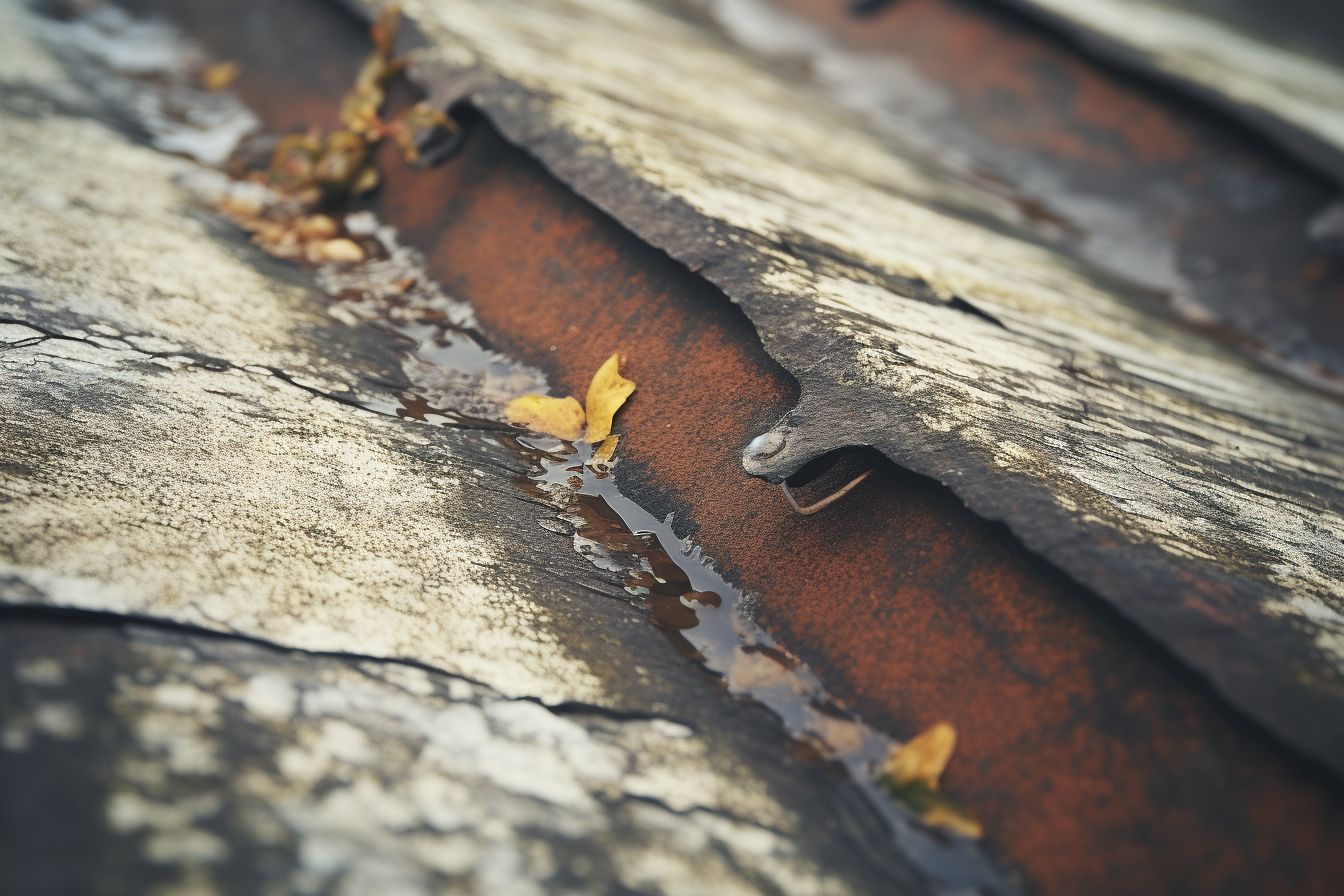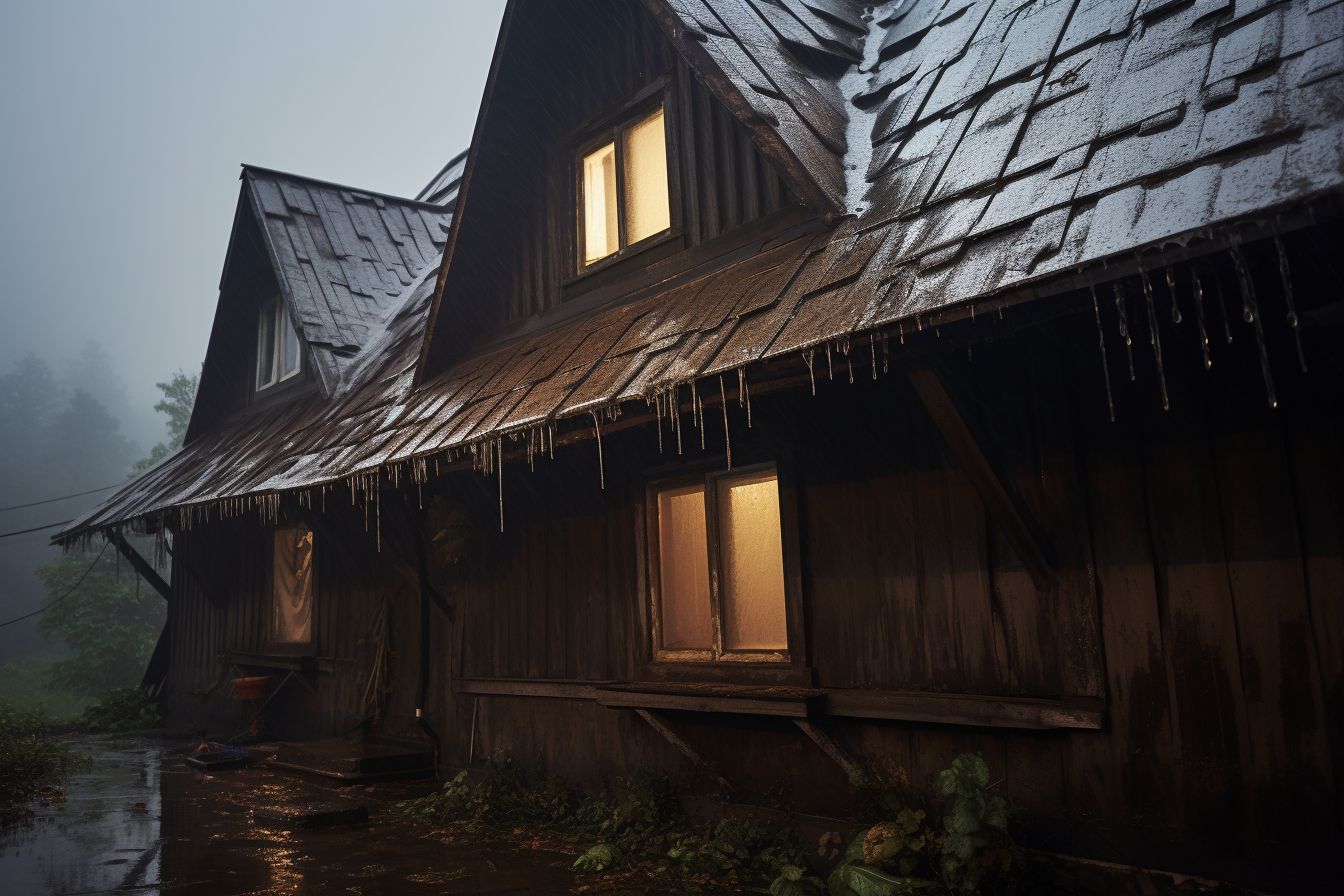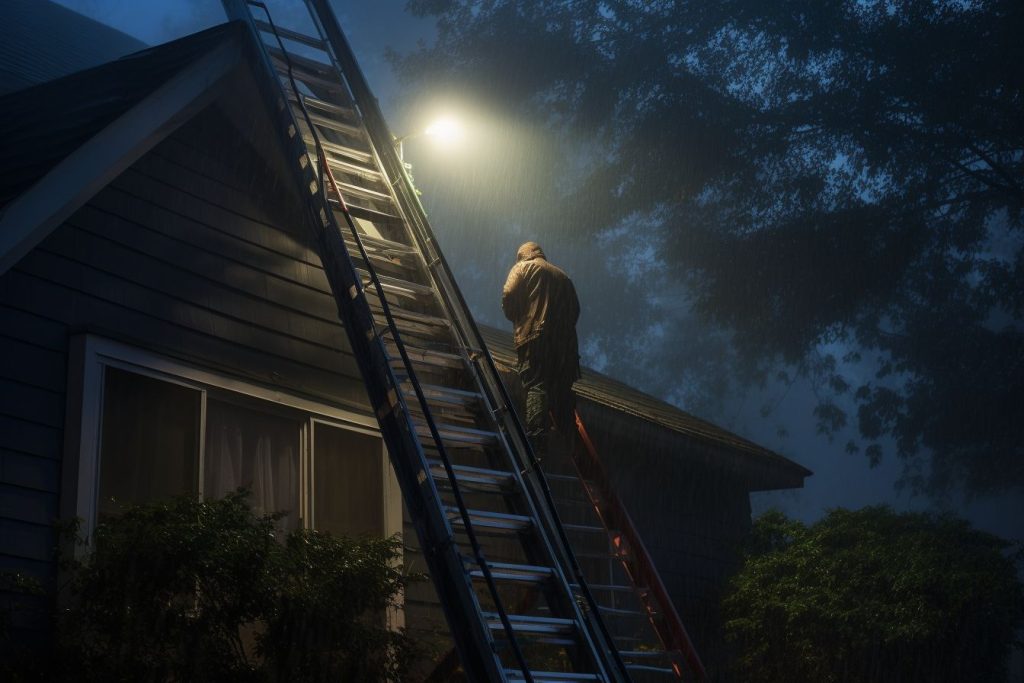A heavy rainstorm can cause many problems for homeowners, including roof leaks. While these situations may suddenly arise, some immediate actions can help you manage the crisis and protect your home.
- Start by identifying the source of the leak. It could be worn-out shingles, clogged gutters, or damaged skylights.
- Swiftly move any valuables or fragile possessions out of reach of the leaks. This helps prevent potential water damage.
- Contain leaking rainwater using available household items like buckets or pots. This will help limit water intrusion into other areas.
- Cover critical items in your home with waterproof covers to shield them from getting wet.
- Take temporary measures like applying a tarp over the affected area to stop the leaks during heavy rain.
- Once the rain subsides, inspect your roof thoroughly for any signs of further damage or potential areas where leakage might occur.
- Finally, call a professional roofer for emergency repairs as soon as possible to mitigate the risk of future leaks.
Identify the Source of the Leak

Inspecting your roof thoroughly can help you pinpoint the source of leaks. Please look for signs of water damage or infiltration along the surface and edges. Aged roofs often have visible punctures, blisters or cracks that serve as rainwater entryways, leading to an internal leak.
Specific areas to scrutinise further are chimneys and skylights; these structures could contribute to leaks due to improper installation or deteriorating roofing materials around them.
Metal corrosion is another potential problem that needs attention while identifying the root cause of the leak.
Gutters and downspouts are crucial in sustaining your roof against heavy rain. Clogged gutters prevent adequate drainage, leading to water accumulation on the roof and indirectly causing leakage issues.
Routine maintenance becomes vital in such cases. Meeting with roofing contractors periodically helps maintain overall waterproofing measures. We are Reducing the chances of unexpected leaks during heavy showers.
Clear the Area and Contain the Water
A roof leak during heavy rain can lead to extensive water damage. Taking immediate action to clear the area and contain the water can benefit significantly.
Call a Professional Roofer for Repairs
A professional roofing contractor is crucial in dealing with heavy rain damage. Their expertise in roof repairs is invaluable, ensuring the job gets done efficiently and safely.
Handling roof leaks isn’t a task for amateurs as it involves risks of falling or exacerbating the problem. Hiring professionals ensures proper assessment of your property’s roof, identifying areas requiring future repair or complete reconstruction.
Additionally, expert roofers are well-versed in documenting any damage caused by leaks or harsh weather conditions, which can be critical when filing insurance claims. A quick call to them means you don’t have to worry about accidentally overlooking something important while evaluating your property.
Furthermore, they know how to install tarps properly over damaged sections of your roof, which helps prevent additional water intrusion until permanent repairs can commence. This intervention reduces the chances of internal water damage extending throughout your home.
Conclusion

In conclusion, when faced with roof leaks during heavy rain, it is essential to take immediate action. Could you identify the source of the leak, clear the area, and keep the water to minimise damage?
Finally, could you call a professional roofer to assess and repair any issues? I want you to know that acting quickly and decisively protects your home from further water damage caused by roof leaks.
FAQs
1. How can I temporarily stop a roof leak during heavy rain?
To temporarily stop a roof leak during heavy rain, use plastic sheets or tarps to cover the affected area and divert water from your home.
2. Can I fix a roof leak myself?
While it is possible to fix a roof leak yourself, contacting a professional roofer with the expertise and equipment necessary for proper repair is recommended.
3. What should I do if my ceiling leaks during heavy rain?
Suppose your ceiling leaks during heavy rain; place buckets or containers under the leak to catch the dripping water and protect the furniture or other valuable items. It’s essential to address the underlying cause of the leak once it’s safe to do so.
4. Should I take action immediately if my roof leaks in heavy rain?
If your roof leaks in heavy rain, you should prioritise safety by ensuring everyone is out of harm’s way and removing any electrical devices near the affected area. Then, could you temporarily keep the water until a professional can assess and repair the damage?
5. How long does a professional roofer fix a roof leak caused by heavy rain?
The time required for fixing a roof leak caused by heavy rain depends on various factors, such as the extent of damage and availability of materials. You should consult a professional roofer for an estimated timeline specific to your situation.

